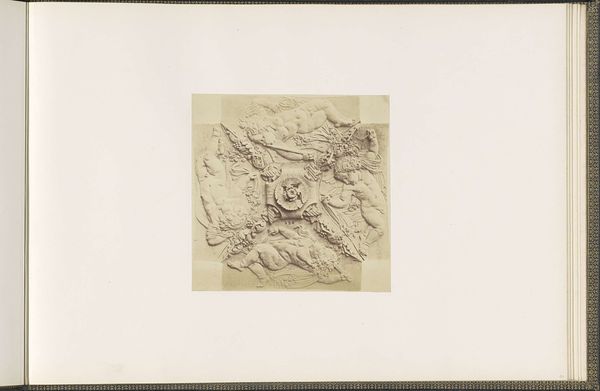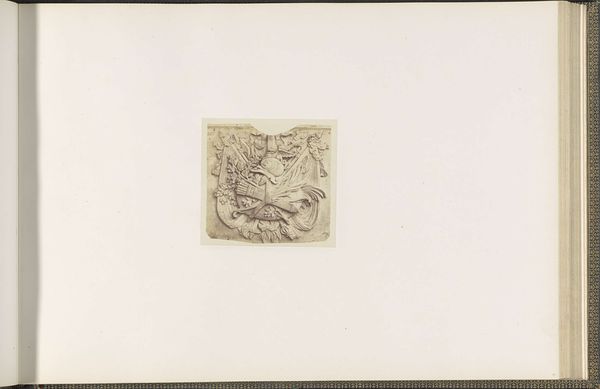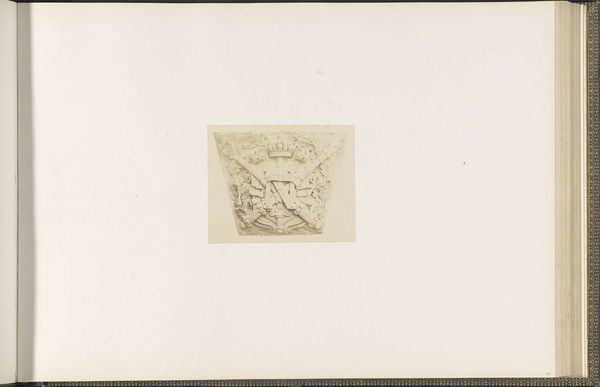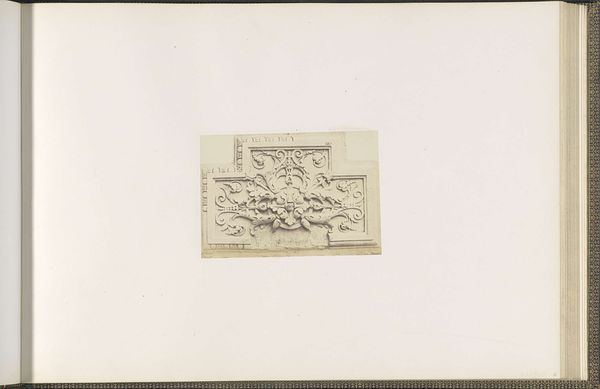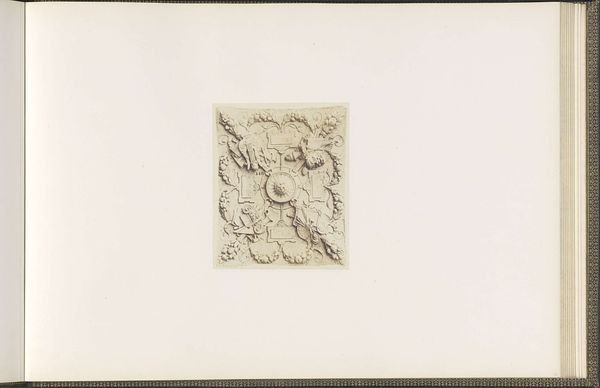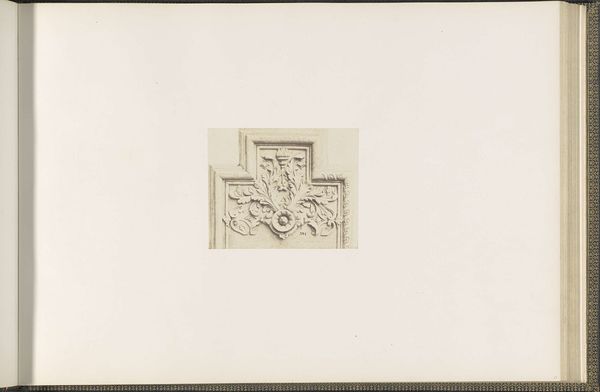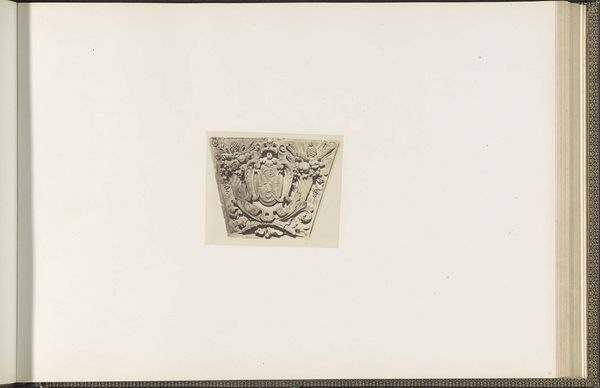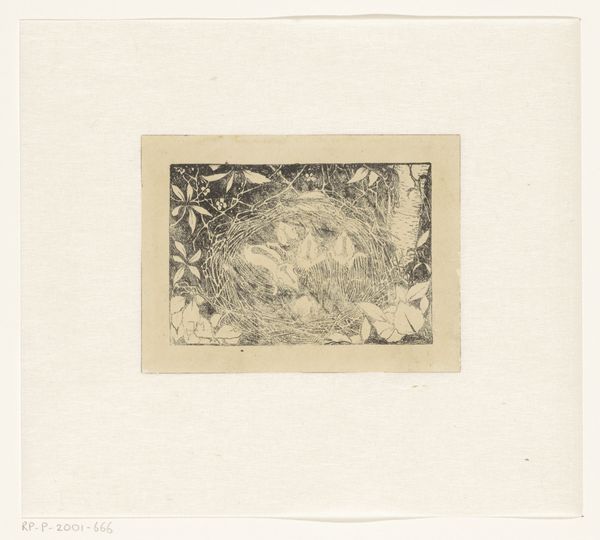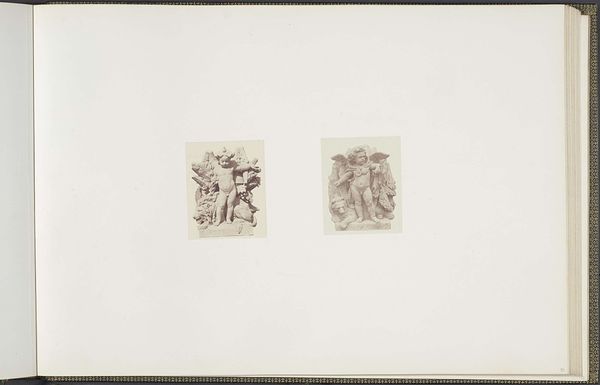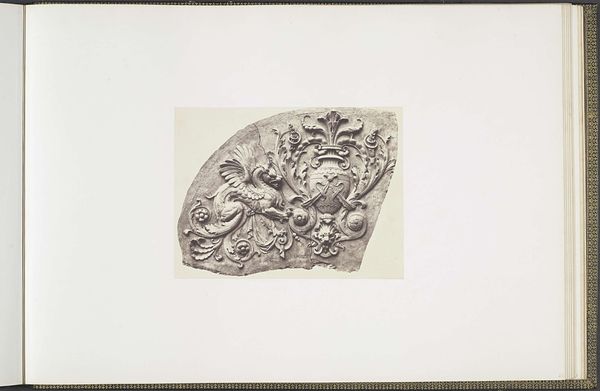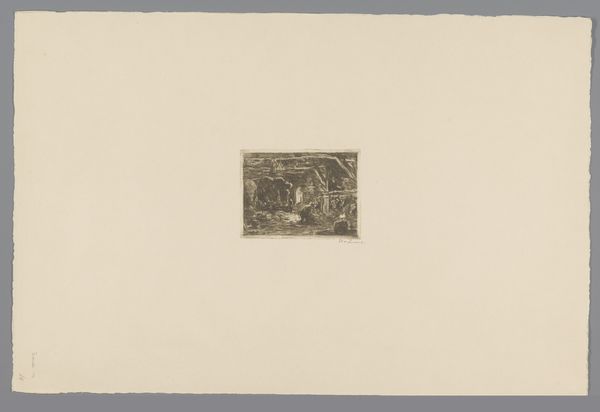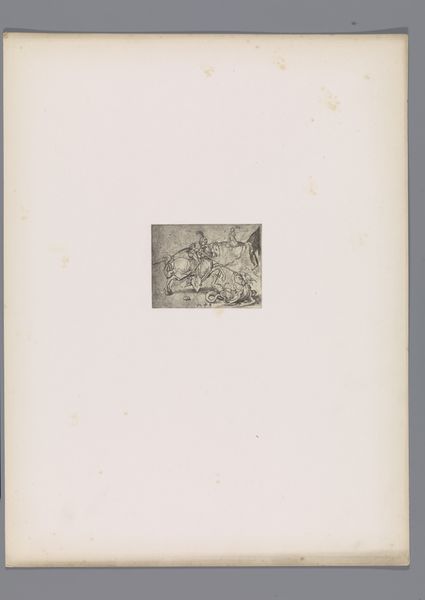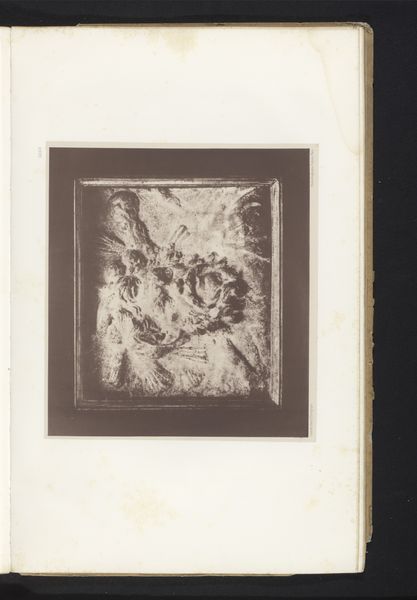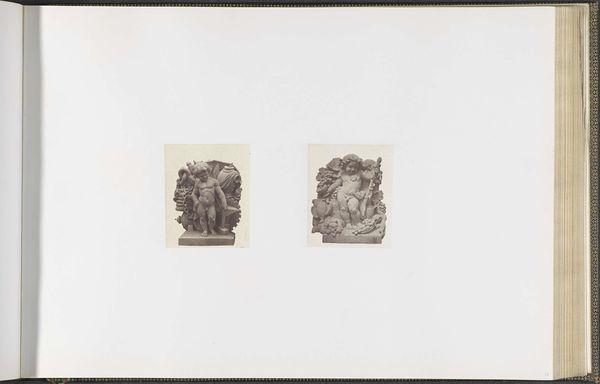
Gipsmodel voor een wapenschild op het Palais du Louvre c. 1855 - 1857
0:00
0:00
edouardbaldus
Rijksmuseum
print, photography, embossing, collotype
#
portrait
#
neoclacissism
# print
#
photography
#
embossing
#
collotype
Dimensions: height 376 mm, width 523 mm
Copyright: Rijks Museum: Open Domain
Edouard Baldus captured this photograph of a plaster cast intended for a coat of arms at the Palais du Louvre. The symbols within, a lion, flags, and floral garlands, represent power, nationhood, and honor— motifs that have permeated heraldry since the medieval era. The lion, often seen as king of beasts, reappears across cultures from the ancient Near East to medieval Europe, symbolizing royalty and courage. Similarly, flags, or standards, have been used throughout history to rally troops and denote territory, their waving forms invoking a sense of collective identity and allegiance. Even floral garlands, reminiscent of ancient Roman triumphs, speak to victory and celebration. These symbols are not static; they evolve, adapt, and resurface in new contexts, echoing through the corridors of time and culture. Their emotional and psychological power engages us on a deep, subconscious level, reminding us that history is a constant, cyclical return.
Comments
No comments
Be the first to comment and join the conversation on the ultimate creative platform.
